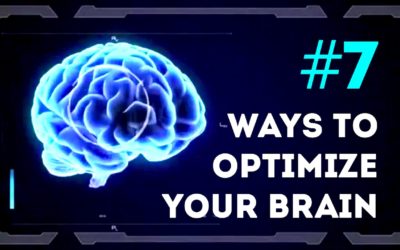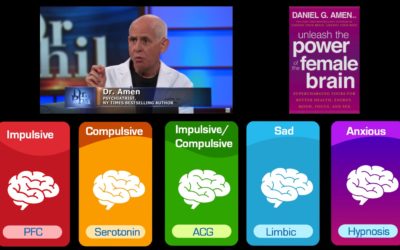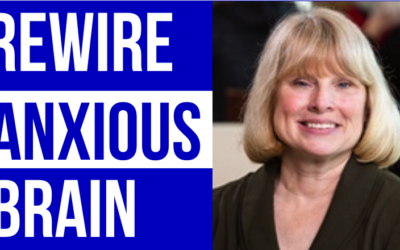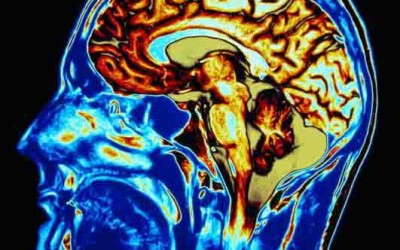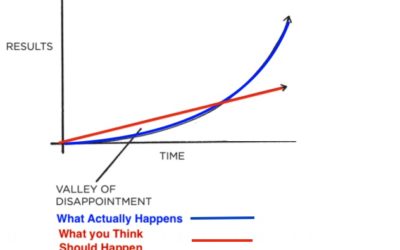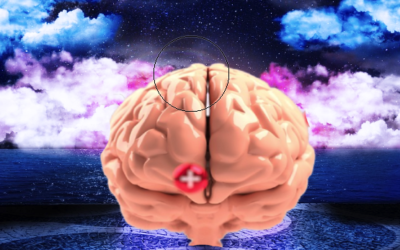Dr. Richard Davidson, a neuroscientist from the University of Wisconsin in Madison, and Dr. Sara Lazar, a neuroscientist based out of Massachusetts General Hospital and the Harvard Medical School gives an interview on his findings with meditation and its effects on the brain.
The following interview has been edited and condensed for clarity.
Host Bob Macdonald: Dr. Davidson, what was the most striking thing you found when you studied the meditation experts the Tibetan Buddhist monks?
Richard Davidson: Probably the most striking thing was in terms of the scientific findings was the presence of these very high amplitude gamma oscillations that occurred in the meditation period when they were meditating, but also were very prominent in their so-called baseline state. And I should say that these are if you will professional meditators. These are people who have an average of about 34,000 hours of lifetime practice and listeners can go do the arithmetic at home. But that's a pretty big number.
BM: What was going on in their brains that's different from what would be going on in say my brain?
RD: One of the important characteristics of these long term meditators if you will is that the distinction between the state of meditation in their ordinary state if you will is blurred.
This is the what we think of as the transition from a state into a trait. That is, it becomes an enduring characteristic of their minds and brains, rather than something transient that occurs only when they practice meditation.
Dr. Sara Lazar: Well we looked at brain structure and what we found is that there's several brain regions where there is more gray matter in the long term meditators compared to non-meditators. And as Dr. Davidson said that when you start meditating regularly that there is a shift that there's a blur between your meditation state and your everyday state.
And so we're interpreting these differences in gray matter to reflect that. That this is perhaps why and how you can get these shifts you're not meditation state looks more like your meditation state - the brain actually starts to rewire itself. And that's what we saw evidence for in these long term meditators.

SL: The most pronounced changes were in the insula. This is an area that's involved in integrating sensory experiences with cognitive thinking. And so you could think of that, sort of in a very loose hand-waving sort of way, as the mind body sort of area. We also found areas in the front of the brain which is an area involved in rational thinking and decision making.
BM: Dr. Lazar, we hear a lot about enlightenment, if meditation really does work. From a scientific point of view what is that possible do you see it?
SL: I think it's important to make a distinction between people who meditate for 20, 30, 40 minutes a day for stress reduction and people who are really committed to obtaining enlightenment. As Dr. Davidson pointed out, you could think of those monks as being professional meditators. And so I think that it really takes that sort of commitment -- full time commitment for many, many years -- in order to reach enlightenment. For the average Joe who's just meditating for stress reduction that that's not really a realistic goal.
BM: Dr. Davidson, you say that meditation could make people feel worse. What do you mean by that?
RD: It can exacerbate depression, it can precipitate psychosis. It can do some harm. It's really important for an individual who may be predisposed and have a history of some psychiatric difficulty to engage in meditation practice under the guidance of a teacher who is both a mental health practitioner as well as a meditation teacher.
And often if a person I think is doing worse it could very well be because the nature of the instruction is not as attuned to where the person is as it might be.
BM: Dr. Lazar, how do you feel about people going to a phone app for their guided meditations without a teacher present?
SL: The apps are like a book or any other recording or any other things that have existed in the past. I think they're great as a supplement but I don't think anything compares to having a teacher that you can talk to about your experience.
Mindlines for Kamala – How to Use Reframing and Cartesian Coordinates
one of the greatest accomplishments of the Eisenhower Administration, was the creation of an Interstate Highway System. President Eisenhower didn’t travel all the highways, but he got the job done paving the future for generations to travel across the USA. So even though those leaders didn’t drive all the highways or travel to Korea or the moon, they were able to be on task getting the job done without going to those borders.
7 Ways to Optimize Your Brain and Improve Mental Health
Improve brain performance by...
Dr Joe Dispenza: How to Get Over Your Ex and Forgive Them After a Breakup
In this video below we get to hear...
Dr Joe Dispenza, What is Heart Coherence?
...
Book Review ‘Unleashing the Power of the Female’ by Dr Daniel Amen
Dr Daniel Amen is the author of...
How to Rewire the Brain to Overcome Anxiety
Overcoming social anxiety or overcoming the fear of driving both requires activating a threat detector in the brain called the amygdala. Fortunately, the brain can change due to neuroplasticity and it is for this reason that enables people to stop anxiety and rewire their anxious brain.
Phrases for Conversational Hypnosis
Phrases for Conversational Hypnosis...
Hypnosis for Mental Strength
The Hypnosis for mental strength script came about from reading the ‘Ninja Mind’ which has a chapter about how ninjas would do this meditation to build up their mental strength before going out on a mission.
How to Be Persuasive Using Conversational Hypnosis
This post is a crash course on how to...
Gratitude, Depression, the Brain and the Upward Spiral with Dr Alex Korb
Neuroscientist Dr Alex Korb shares...
50 Ways To Kill Brain Cells
If you wanted to repair brain cells, one good start is to know which activities and substances can damage brain cells. Although the brain can repair and rewire itself, you can help restore some of it’s structure and functioning by not doing these methods known to cause damage to brains and in some instances, neurological disorders.
How to Overcome Addiction to Your Ex. (incl. Free Hypnosis to Get Over a Breakup and Overcome Addiction to Your Ex)
Richard Gray Ph.D wrote the book,...
What is Brain Fog?
We have all been forgetful at times. ...
What is Somatic Meditation?
In somatic meditation, the focus is on your internal sensations. The meditation object can be your breath, the sensation of blood flowing rhythmically through your body, the energy tingling in your fingers and toes, or any of the vast sensory information being transmitted from your body to your brain.
87 Affirmations for Business with Free MP3 Download
Affirmations for business can help you stay on track while reducing inefficient mind-wandering.
For best results, repetition and consistency is getting to get the most from this affirmations for business.
I choose to be happy and healthy.
I love my work.
I love to have an optimistic outlook.
I am thankful for all the positive traits in me that help me succeed.
77 Affirmations for Financial Abundance
My mind is a powerful magnet for wealth and abundance.
Money flows to me freely as I move through this world.
I will attain all the riches that I desire with time.
I am a capable person that can tackle all money obstacles.
I have the power to be a financially successful person.
I have the power to improve my relationship with money.
I can find the positive in my money situation.
I believe in my ability to use the money that comes into my life to meet my financial goals.
It is within my power to create a successful financial future.
With hard work, I can build the financial future that I desire.
99 Affirmations for Anxiety – Free MP3 Download
I am safe and in control.
I believe in my ability to get through tough times.
I will not stress over things I cannot control.
The feelings in my body are normal and I fully accept them.
I have everything I need within me.
I have been through hard things before and have survived them.
I have the ability to overcome anxiety.
I am worthy of good things.
All of my feelings are valid.
I appreciate my life and find things to be grateful for.
Everything that is happening now is truly for my highest good.
I am blessed, loved and supported.
10 Reasons Why a Meditation Chair with Back Support Will Revolutionize Your Practice
. Enter the meditation chair with back support – a game-changer in the world of mindfulness. If you’ve been wondering about investing in one, here are 10 compelling reasons why it will transform your meditation sessions.
Why Teen Depression Rates are Rising Faster for Girls than Boys
Why might girls be more prone to unhappiness when using social media?
Popularity and positive social interactions tend to have a more pronounced effect on teen girls’ happiness than boys’ happiness. Social media can be both a cold arbiter of popularity and a platform for bullying, shaming and disputes.
How Do I Stop Being Deeply Depressed Over a Breakup with My Ex?
Since the breakup you’ve developed a skill that you don’t want. And this is not your fault, its your brain. You’ve trained yourself to develop the neural circuitry that easily allows you to take that habitual route to crying and feelings of guilt, anger, sadness shame et al with greater ease. And the more this is done, the more it becomes ingrained as a default response associated to thoughts of the ex. If I throw you a ball, you’ll automatically move to catch it. If you think of your ex, you automatically move to sadness, crying, doom and gloom. But you don’t have to play catch and you don’t have to react with negative states of being. You do have a choice.
107 Affirmations for Confident Women
Affirmations for women were used to see if it would create behaviour change towards eating more fruit. The results had shown that ‘self-affirmation interventions can successfully influence health-promoting behaviors’
How to Start a Youtube Channel for Beginners – 2022
...
Meditation Chair Benefits for Meditators
Meditation chairs are designed to enhance the meditation experience and provide comfort and support during extended periods of seated meditation. Meditation chairs can be extremely beneficial for individuals who practice meditation regularly because they are designed specifically to provide the individual better ability to focus on their practice without being distracted by discomfort or having to find a comfortable place to sit.
What are 5 Factors to Consider when Buying a Meditation Chair with Back Support
A meditation chair with back support is a specially designed chair that helps you sit comfortably and maintain a good posture while meditating and it’s also handy because it gives you a place to anchor as your place of serenity where you can meditate peacefully every time.
Unlike regular chairs, a meditation chair with back support supports your natural spine curvature and allows you to relax your muscles and joints.
Hypnosis Career: How a Teacher Changed Work and Improved Lives
“As a former stressed teacher turned clinical hypnotherapist, I wanted to share some simple strategies to manage fear and reduce feelings of anxiety.
It’s something I suffered from prior to practically reframing my mindset for long-term change.”
The Science of Habits
One important feature of habits is that they’re triggered by cues in our surroundings, says Wendy Wood, a social psychologist at the University of Southern California whose research focuses on how we form and change habits but what we are looking to do is to create Atomic Habits which is about creating a trigger that is aligned with your goals. The trigger could be a time of day, a particular place or a different activity. Getting out of bed each morning and shuffling to the kitchen, for example, might trigger you to scoop some beans into a grinder and go through the motions of making coffee.
Why Forgetting May Make Your Mind More Efficient
If forgetting is the key to how the brain successfully processes the massive data input it encounters each day — as research accumulated so far suggests — then flaws in the forgetting process could plausibly contribute to brain disorders, Davis and Zhong note. Deficits in the ability to forget may be involved in autism spectrum disorders, for instance. Certainly the powerful and debilitating memories of post-traumatic stress disorder reflect an inability to forget disturbing experiences.
“Breakup Recovery: 5 Strategies for Moving Forward”
Breakups can be especially difficult...
The Trouble with Medicating Mental Illness
Today there are about 5,000 seriously mentally ill people in the Los Angeles County jail. I have a hard time going to the jail myself — it’s such a horrible place. Many of the sickest patients refuse medications, often exacerbating their psychotic symptoms. The sheriff has little recourse but to house the most psychotic, non-compliant inmates in isolation, so as to be the least disruptive to the other inmates and guards.
What is Meditation and its Benefits?
For thousands of years people have...
Dr Joe Dispenza Review
If you enjoyed the review of Dr Joe...
How to Overcome Grief of Queen Elizabeth II
This grief pattern is for helping you...
Chöd Meditation for Feeding Your Demon by Lama Tsultrim
If we fight our demons, they only grow stronger. But if we feed them, nurture them, we can free ourselves from the battle. Through the clearly articulated practice outlined in ‘Feeding Your Demons’, we can learn to overcome any obstacle and achieve freedom and inner peace.


